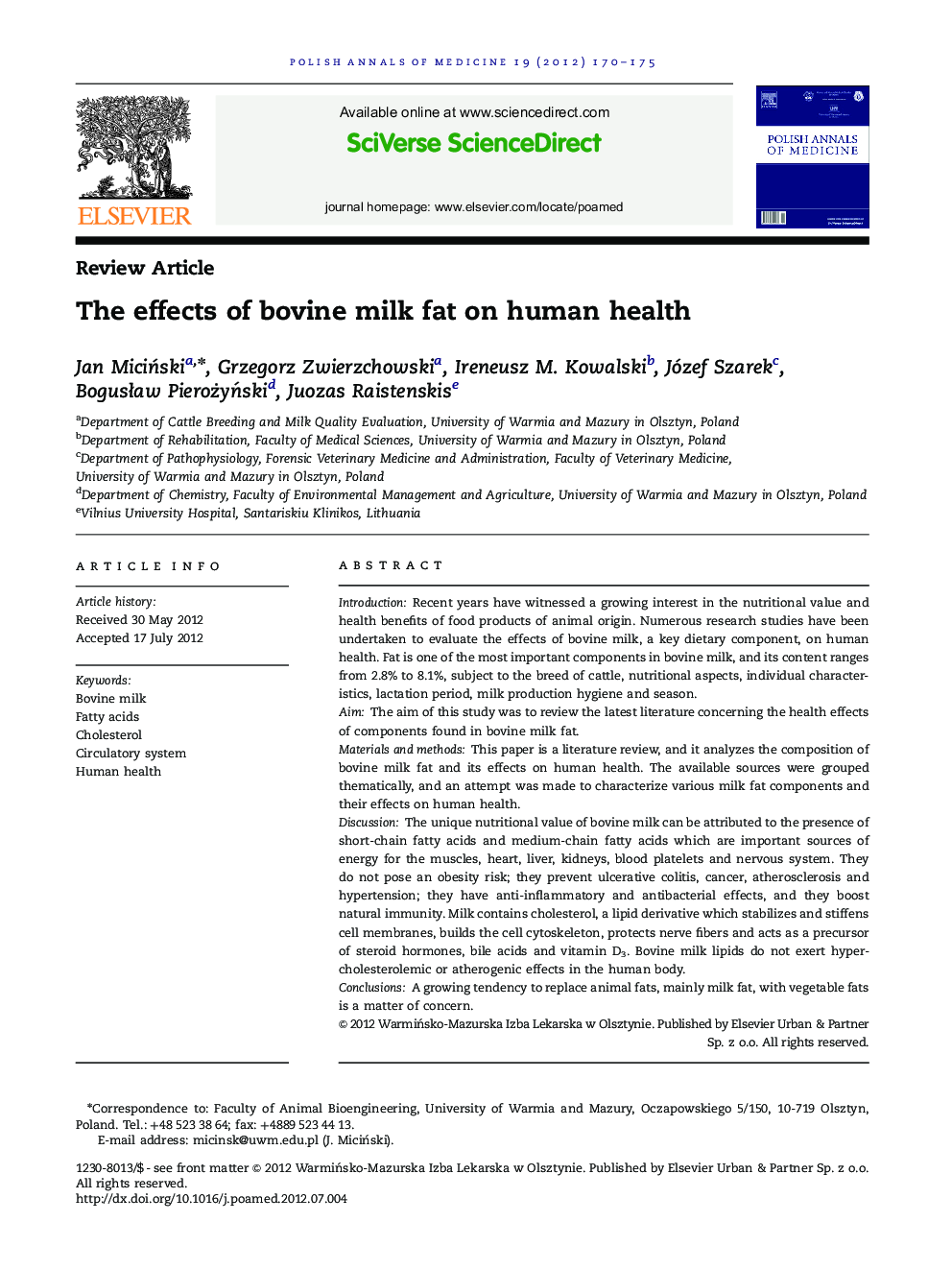| Article ID | Journal | Published Year | Pages | File Type |
|---|---|---|---|---|
| 2675374 | Polish Annals of Medicine | 2012 | 6 Pages |
IntroductionRecent years have witnessed a growing interest in the nutritional value and health benefits of food products of animal origin. Numerous research studies have been undertaken to evaluate the effects of bovine milk, a key dietary component, on human health. Fat is one of the most important components in bovine milk, and its content ranges from 2.8% to 8.1%, subject to the breed of cattle, nutritional aspects, individual characteristics, lactation period, milk production hygiene and season.AimThe aim of this study was to review the latest literature concerning the health effects of components found in bovine milk fat.Materials and methodsThis paper is a literature review, and it analyzes the composition of bovine milk fat and its effects on human health. The available sources were grouped thematically, and an attempt was made to characterize various milk fat components and their effects on human health.DiscussionThe unique nutritional value of bovine milk can be attributed to the presence of short-chain fatty acids and medium-chain fatty acids which are important sources of energy for the muscles, heart, liver, kidneys, blood platelets and nervous system. They do not pose an obesity risk; they prevent ulcerative colitis, cancer, atherosclerosis and hypertension; they have anti-inflammatory and antibacterial effects, and they boost natural immunity. Milk contains cholesterol, a lipid derivative which stabilizes and stiffens cell membranes, builds the cell cytoskeleton, protects nerve fibers and acts as a precursor of steroid hormones, bile acids and vitamin D3. Bovine milk lipids do not exert hypercholesterolemic or atherogenic effects in the human body.ConclusionsA growing tendency to replace animal fats, mainly milk fat, with vegetable fats is a matter of concern.
